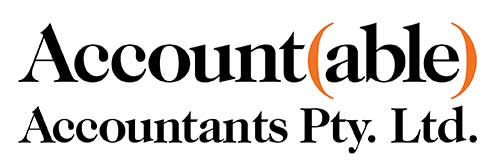PROS AND CONS OF HAVING A SELF-MANAGED SUPER FUND

By Patrick Hoey – FCPA – director at Account(able) Accountants

I’ve had a lot of clients ask about the benefits of a Self-Managed Super Fund (SMSF) and how they can make more money for their retirement, which I say to them that you need to look at both the ‘pros’ and ‘cons’ of having a SMSF. I have outlined below some brief points of having your own SMSF:
PROS:
- Feel like you have more control (but is time consuming – see ‘con’ below’).
- Can make decisions with investments more quickly.
- Can be motivated to put more money into super, as you control the investing of it. So this helps save some tax at time of contributing, and helps increase your super balance for retirement.
- Enables you to invest in a 15% tax environment (and 0% when you retire).
- Can sell investments (ie property) in retirement, and not pay Capital Gain Tax.
- Can buy rental property (and borrow to fund part of the purchase).
- Enables you to have direct investments in shares, units trusts, etc (but there are strict rules of not investing in anything that is personally related
- Can save on fees you currently pay (when your super balance is over about $250k) – which you should also consider the investment returns each year too.
- Part of set-up will require a review your insurance covers, which is good to see what levels you need.
- Allows you to transfer commercial property you currently own into your SMSF (but not residential property)
CONS:
- You need to put some time in with it and have some financial skills – ie collecting information, managing funds, making decisions, correspondence with your accountant and financial planner, etc (compared to just getting an annual statement from your current super fund).
- You are responsible to adhering to the SMSF rules and regulations.
- May need to change your insurance covers (but could keep some funds in your current super fund, and keep current insurance cover).
- Can’t remove the super funds until retirement.
- Has one-off significant set up costs (about $5k, and more if plan to get a loan to buy a property).
- When having low super balances, can be more costly than having your normal super fund (but need to take into consideration investment returns as well).
- Can be confusing to what you are allowed and not allowed to do with the SMSF funds and investments (which it is important that no SMSF funds get intermingled with personal funds, or that you are getting a personal benefit).
Running your SMSF will require you to engage with an accountant to complete annual compliance tasks of financial statements, tax returns and an audit (and have regular discussions of what is allowed and not allowed to do with the SMSF funds), and its recommended you have a Financial Planner to get advice on your investments in your super fund. Recent changes now require a SMSF set-up to be involved with a Financial Planner to ensure your best interest is taken into account (and avoid the property spruiker seminar signing you up to a SMSF and property when you don’t know what all the requirements and considerations are).
For more information or a free discussion, call Pat at Account(able) on 0417 970 486.
